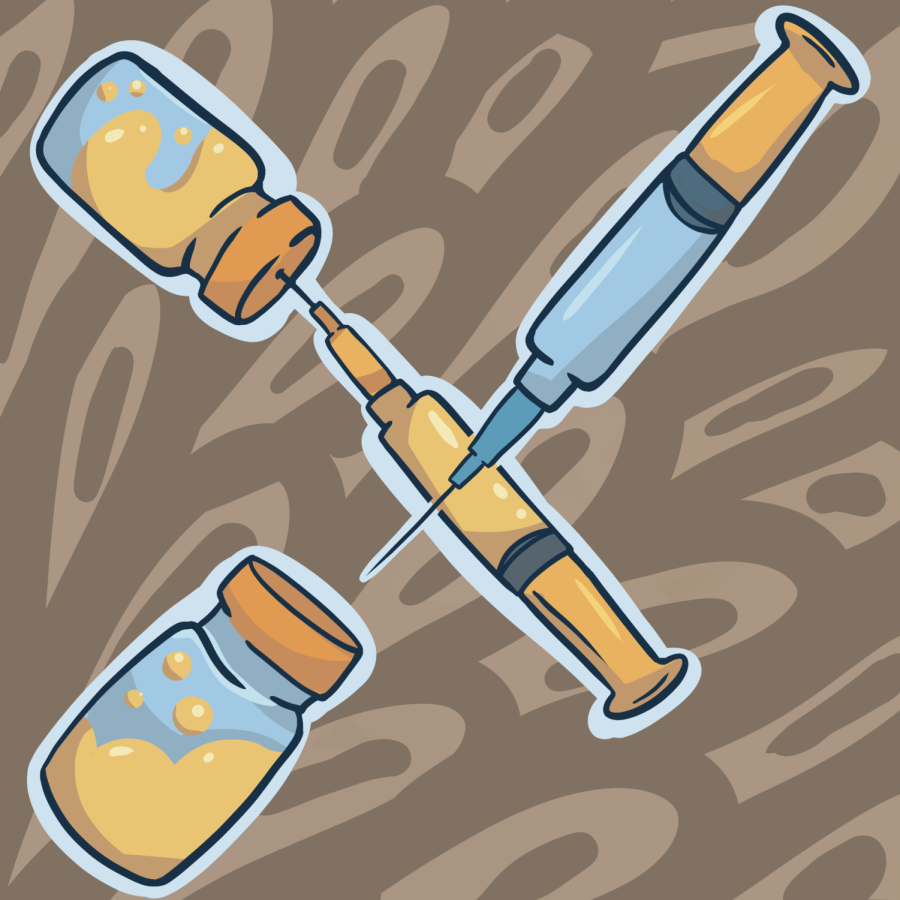UT, Austin Public Health offer second COVID-19 booster shots for eligible individuals
April 19, 2022
Editor’s Note: This article first appeared in the April 15, 2022 flipbook.
Immunocompromised individuals and people 50 and over can now get their second COVID-19 booster shot through University Health Services and Austin Public Health following updated Centers for Disease Control and Prevention recommendations released last month.
Qualifying individuals who received their first booster at least four months ago are eligible for a second mRNA booster. Adults who received the initial vaccination and booster shot of Johnson & Johnson’s Janssen COVID-19 vaccine are eligible for a Pfizer or Moderna shot as their second booster after four months as well. More information on the CDC’s full vaccine recommendations can be found on their website.
Terrance Hines, UHS executive director and chief medical officer, said given how unpredictable COVID-19 case surges are, it is important for people to receive boosters as they become available to them.
“When (people) become eligible is the best time to go ahead and get that additional protection … to avoid or minimize their overall risk,” Hines said. “Those are groups that are at greatest risk of severe illness and death or hospitalization. By giving them this additional protection, we hope to avoid the most serious consequences of COVID.”
Vaccines are available through UHS for students, faculty and staff by appointment only at the Student Services Building and available to the public at the UT Family Wellness Center.
Vaccines are also available through Austin Public Health by appointment or walk-in at the Old Sims Elementary Gymnasium. All vaccine providers can be found using vaccines.gov.
Getting vaccinated can help prevent lasting side effects of COVID-19, such as long-lasting effects on the lungs and kidneys and, in the case of the Delta variant, developing diabetes post-recovery, said Nelda Garcia, a registered nurse supervisor in Austin. These side effects are worsened if an individual is immunocompromised, she said.
“We’re trying to (avoid) getting to the point where we have more people with diabetes than otherwise wouldn’t have had it,” Garcia said. “People are recovering, (but) they’re having foggy memories. They’re still having headaches. These are all effects that we can take care of now with the simple vaccine.”
The CDC reported that individuals boosted during the Omicron surge were 21 times less likely to die from COVID-19 and seven times less likely to be hospitalized compared to those not vaccinated. Garcia said the availability of booster shots during the surge at the beginning of the year helped hospitals to focus on patients dealing with ailments other than COVID-19.
“The hospitals were able to care for people who have strokes, heart attacks or just any kind of injuries,” Garcia said. “They were taking care of the people that they were supposed to be taking care of. Urgent cares weren’t over-flooded anymore. We continue to encourage our population to (get vaccinated) because we have seen the effectiveness.”
Garcia said getting boosted significantly reduces risk of severe disease with the Omicron variant.
“Your symptoms are not (so) severe that you would need to have a respirator or need to go to the hospital,” Garcia said. “It’s something that you can handle with your primary care physician.”



